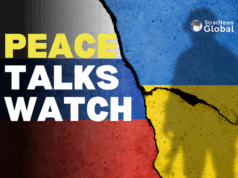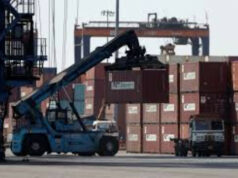NEW DELHI: Ambassador Asoke Mukerji, India’s Former Permanent Representative to the United Nations says the UN “has done nothing to monitor or enforce the implementation of its own resolution on upholding the Minsk agreement”. India abstained in the March 2, 2022 UN General Assembly resolution that ‘strongly deplored Russia’s aggression against Ukraine’, New Delhi’s third abstention in a week at the world body. In the discussion with Amitabh P. Revi, streamed before the UNGA vote, the former envoy explains the context of India’s statements that first focused on the “legitimate security interests of all parties” and “subsequent statements that focused on the principle of territorial integrity and sovereignty of states and the UN Charter”. Ambassador Mukerji recounts how India went “through a similar experience in December 1971 in the Security Council, that is very relevant now” and how “the Soviet Union, used that episode to enable us to meet our own security interests.” Today, he points out “also we see a similar polarization because it is almost like a new Cold War”.
Watch the complete discussion here (https://stratnewsglobal.com/europe/an-ineffective-un-security-council-and-russias-war-in-ukraine-indias-position/)
TRANSCRIPT:
If you look at the way we have applied our experience in the Security Council, I think it is possible to see the context in which we have focused on the legitimate security interests of all parties. The conflict on the ground, the armed action, the use of military force on the ground has been taken in response to a security issue which has been raised by Russia in this case. Now, if we had gone down the path of diplomacy, we would have been able to discuss this issue through a diplomatic framework, even in the Security Council, or as a group of the Security Council dealing with the Ukraine issue. But, from the time the Security Council adopted its resolution on Ukraine in 2015, endorsing the Minsk agreement on Ukraine, it has done nothing to monitor the implementation or even to enforce the implementation of its own resolution on upholding the Minsk agreement. So therefore, to anyone who is not involved as a party to the Minsk agreement, but is a member of the United Nations, it is very important to know what is the reason why the Minsk agreement was not implemented. And I think that is the context in which the first statements by India focusing on diplomacy should be seen. Now we have in our subsequent statements focused on the principle of territorial integrity and sovereignty of states and the UN Charter. But, you know, we have gone through a similar experience in December 1971 in the Security Council. I think that is something that’s very relevant. In December 1971 and before December 1971, we had been talking about our security issues and East Pakistan, which the international community just did not take on board except the Soviet Union and France, and to a limited extent the UK. It was basically the Soviet Union, which used that episode in December 1971 to enable us to meet our own security interests, which were focused on the humanitarian problem caused by 10 million refugees having come into India, because Pakistan did not want to uphold democracy, the results of the democratic elections of 1970 which gave a majority to to the Awami League of East Pakistan in Pakistan’s parliament. So that is the experience we have gone through and we know that isolates people if you don’t have an engaged international community. Today also we see a similar polarization because it is almost like a new Cold War. It is ideological, but what is the ideology is not very clear. It could be the ideology of democracy and authoritarianism. But, that discussion in the UN has not really been resolved, because states which are called by Western countries as authoritarian states, turn around and say that they have conducted elections and they are elected as Presidents of their own countries. So how do you draw the line. That is an issue which also needs to be discussed.




